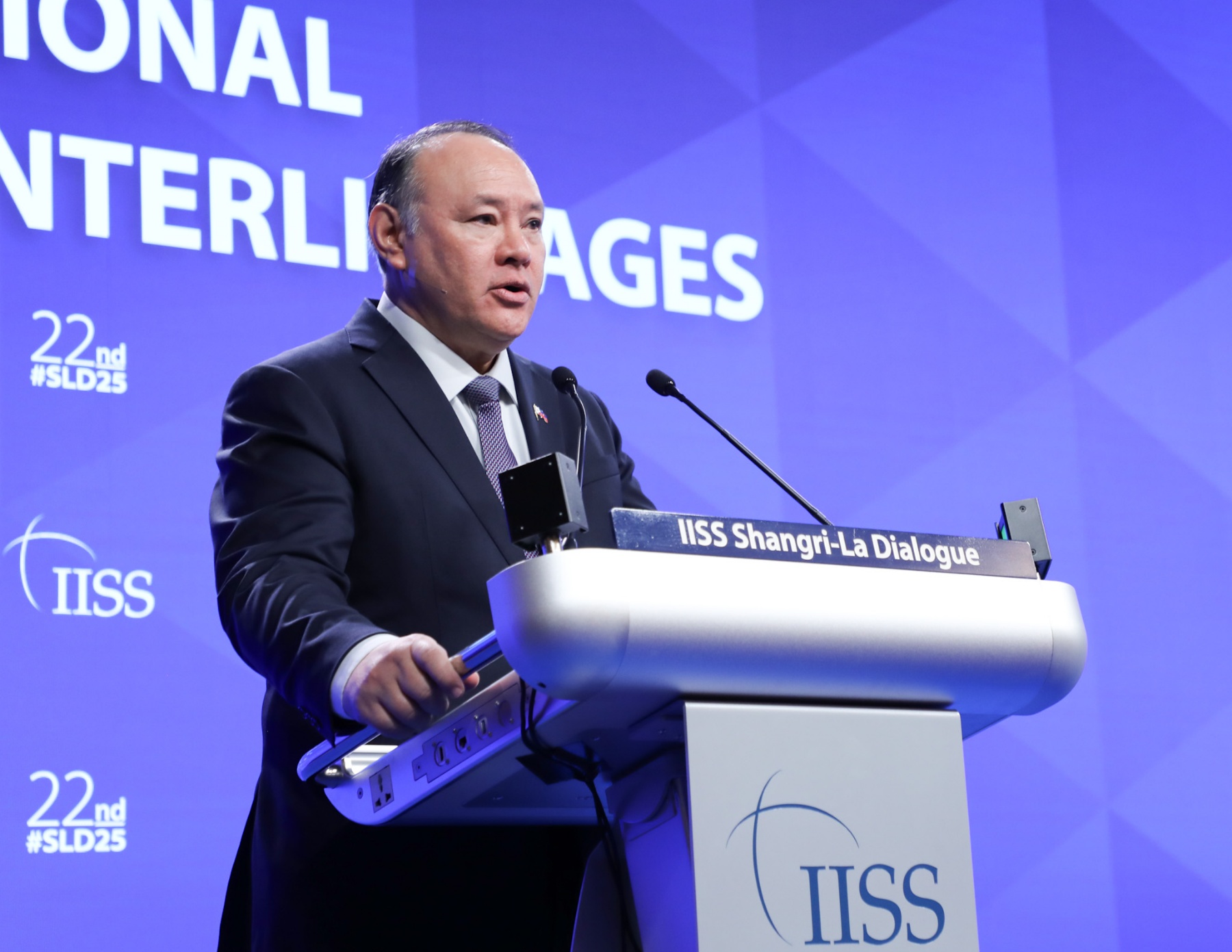
By Priam Nepomuceno | Philippine News Agency
Department of National Defense (DND) Secretary Gilberto Teodoro Jr. said nations must try to beef up cross-regional security cooperation, counter unilateral attempts to undermine the prevailing global order, and rebuild trust in multilateralism amid “interlocking dynamics that transcend regional boundaries.”
Teodoro made this appeal during the plenary session on cross-regional security interlinkages at the 22nd Shangri-La Dialogue in Singapore over the weekend, attended by leaders and experts in defense and security.
The DND Chief said among the effects of cross-regional trends on the security of the Philippines and the outlook of Southeast Asia is the strategic competition between the United States and China.
He emphasized that it is increasingly defining the regional and security environment and endangers the portrayal of legitimate actions taken by smaller states as being carried out at the behest of major powers.
“As if we are mere pawns with no strategic agency of our own. In that spirit, I would like to reiterate that our position on the West Philippine Sea is not a function of Sino-American strategic rivalry. Instead, it is caused by the overreach of the Chinese Communist Party,” Teodoro said.
“The strategic and security effects of disruption of integrated global supply chains and decision-making gridlocks in multilateral organizations prompted the prevalence of networked alliances and minilateralism,” he added, noting that the rise of disruptive technologies brings into stark relief the vulnerabilities of the global infrastructure.
To address these challenges, Teodoro called for joint strategic dialogues, such as trilateral or quadrilateral summits of regional blocs on shared security concerns.
“To this end, we must strengthen ASEAN and leverage its dialogue partnerships, including those with the European Union and the Gulf Cooperation Council,” he said.
As the international system evolves, the DND chief said it should remain grounded on the rule of law, particularly the United Nations Charter, which puts a primacy on the political independence, territorial integrity, and sovereign equality of all states.
“For all its shortcomings, there is no preferable alternative to the rules-based order, especially for the security, prosperity, and survival of smaller states like the Philippines,” he added. (PNA)
